Attacking the Non-attackable. An Interview with Eoghan Mulvenna
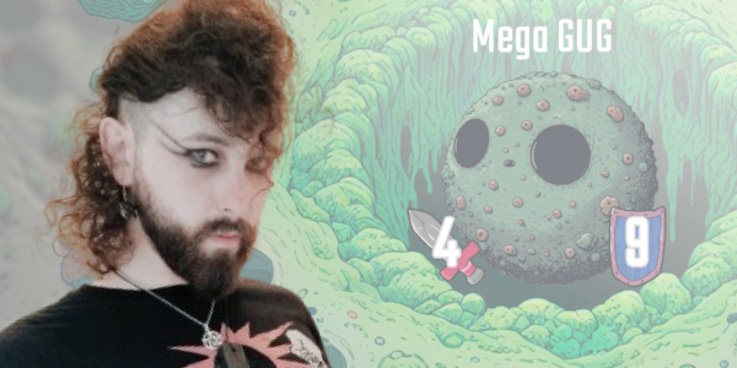
Recently, I chatted with Eoghan Mulvenna from Martian Lawyers Club about development of their new game GUG. We talked about his passion for gaming and the groundbreaking framework he's developing. Here's what he had to say.
Why do you play games?
“That's a really good question, but maybe harder than it seems,” Eoghan says with a laugh. “Games let me explore unique creative outlets and strange narratives. There’s so much you can do in games that you can’t do anywhere else. It’s the main draw—avenues of expression and creativity that are impossible everywhere else.”
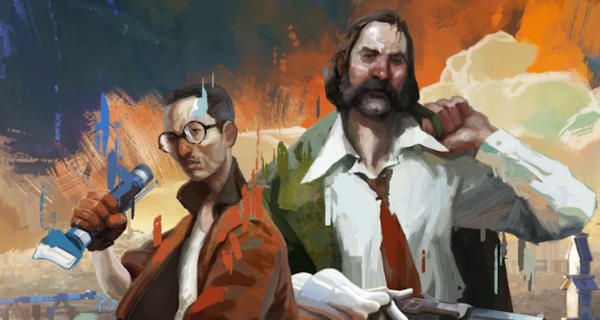
Disco Elysium, by ZA/UM
And making games?
“I’m a very creative person, and game development lets me explore that creativity in a technical way. It’s this lovely midpoint between super technical and super creative. For someone like me, it’s the perfect fit.”
What's the best game you've ever played?
“Ah, tough one. As a piece of art, definitely Disco Elysium. For mechanics, Crusader Kings II. Right now, I’m really into Balatro and a bit of Sweet Transit.”
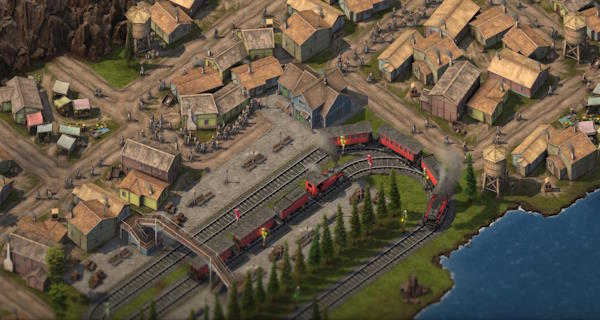
Sweet Transit, by Ernestas Norvaišas
What is Escalon?
“Escalon is a C#, engine-agnostic framework built around an entity-component system. It’s designed to be flexible and not tied to any specific game engine, which is crucial in a constantly evolving industry.”
Why make it engine-agnostic?
“There were a couple of reasons for that. Last year, there were issues in the industry around restrictive payment models, which led to some developers being thrown under the bus.
“We didn’t want our tech tied to Unity or any other engine. I like a data-oriented approach when architecting a game, so we wanted to build our technology around an Entity Component System, where the architecture separates identity, data, and behaviour. Despite Unity having its 'Data Oriented Tech Stack', its workflow can be restrictive and slow. It’s all about being able to work flexibly and powerfully.”
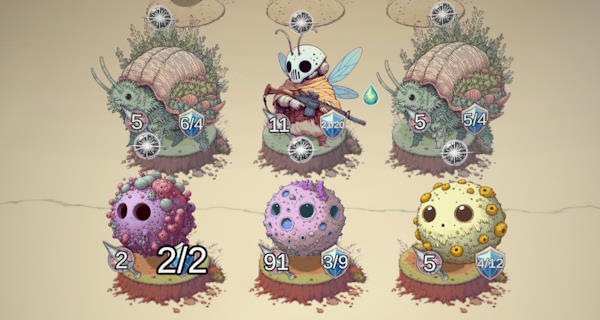
Procedurally-generated ‘gugs’ having issues in their industry
Flexibility vs. Simplicity?
“I usually value simplicity. Overengineering can lead to unnecessary complications. But for our studio and the kinds of games we want to make, flexibility is crucial. It’s about marrying simplicity with flexibility.”
Can you give an example of emergent gameplay that’s come out of this approach?
“Sure. We wanted all encounters—whether shops, battles, or narrative events—to flow similarly to ensure a consistent user experience. Interacting with a shop item should function similarly to placing a creature to fight.
Escalon's data-oriented and flexible framework made this straightforward. Anything on the battlefield can be attacked or interacted with, leaving it up to each entity to determine its response. This means a shop item or a forge point can react to player interactions just like a combat encounter.
This leads to fascinating emergent gameplay. If a special ability gives health to a previously non-attackable entity, it can suddenly be attacked and will respond accordingly. Every entity is a blank slate that can be assigned various properties and reactions, making the gameplay highly adaptable.”
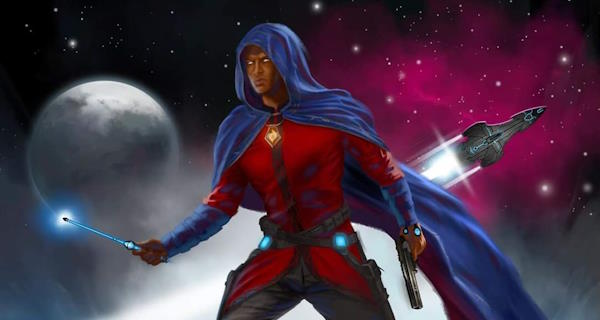
The Last Horizon: The Captain, by Will Wight, illustration Simon Carr
Why is it called Escalon?
“Naming things is always challenging. Escalon came from a sci-fi series by Will White, where a character named Omega, part of the Escalon family, could change shape and adapt—a lot like our framework. It connected with what I was building—a collection of small entities that could be shaped into something else. Plus, Escalon sounds cool and means ‘stepping stone’ in Spanish, which fits well with our philosophy.”
GUG
Eoghan is working on GUG, a roguelike creature battler featuring procedurally-generated creatures. You can wishlist it on Steam.

Recently, I chatted with Eoghan Mulvenna from Martian Lawyers Club about development of their new game GUG. We talked about his passion for gaming and the groundbreaking framework he's developing. Here's what he had to say.
Why do you play games?
“That's a really good question, but maybe harder than it seems,” Eoghan says with a laugh. “Games let me explore unique creative outlets and strange narratives. There’s so much you can do in games that you can’t do anywhere else. It’s the main draw—avenues of expression and creativity that are impossible everywhere else.”

Disco Elysium, by ZA/UM
And making games?
“I’m a very creative person, and game development lets me explore that creativity in a technical way. It’s this lovely midpoint between super technical and super creative. For someone like me, it’s the perfect fit.”
What's the best game you've ever played?
“Ah, tough one. As a piece of art, definitely Disco Elysium. For mechanics, Crusader Kings II. Right now, I’m really into Balatro and a bit of Sweet Transit.”

Sweet Transit, by Ernestas Norvaišas
What is Escalon?
“Escalon is a C#, engine-agnostic framework built around an entity-component system. It’s designed to be flexible and not tied to any specific game engine, which is crucial in a constantly evolving industry.”
Why make it engine-agnostic?
“There were a couple of reasons for that. Last year, there were issues in the industry around restrictive payment models, which led to some developers being thrown under the bus.
“We didn’t want our tech tied to Unity or any other engine. I like a data-oriented approach when architecting a game, so we wanted to build our technology around an Entity Component System, where the architecture separates identity, data, and behaviour. Despite Unity having its 'Data Oriented Tech Stack', its workflow can be restrictive and slow. It’s all about being able to work flexibly and powerfully.”

Procedurally-generated ‘gugs’ having issues in their industry
Flexibility vs. Simplicity?
“I usually value simplicity. Overengineering can lead to unnecessary complications. But for our studio and the kinds of games we want to make, flexibility is crucial. It’s about marrying simplicity with flexibility.”
Can you give an example of emergent gameplay that’s come out of this approach?
“Sure. We wanted all encounters—whether shops, battles, or narrative events—to flow similarly to ensure a consistent user experience. Interacting with a shop item should function similarly to placing a creature to fight.
Escalon's data-oriented and flexible framework made this straightforward. Anything on the battlefield can be attacked or interacted with, leaving it up to each entity to determine its response. This means a shop item or a forge point can react to player interactions just like a combat encounter.
This leads to fascinating emergent gameplay. If a special ability gives health to a previously non-attackable entity, it can suddenly be attacked and will respond accordingly. Every entity is a blank slate that can be assigned various properties and reactions, making the gameplay highly adaptable.”

The Last Horizon: The Captain, by Will Wight, illustration Simon Carr
Why is it called Escalon?
“Naming things is always challenging. Escalon came from a sci-fi series by Will White, where a character named Omega, part of the Escalon family, could change shape and adapt—a lot like our framework. It connected with what I was building—a collection of small entities that could be shaped into something else. Plus, Escalon sounds cool and means ‘stepping stone’ in Spanish, which fits well with our philosophy.”
GUG
Eoghan is working on GUG, a roguelike creature battler featuring procedurally-generated creatures. You can wishlist it on Steam.